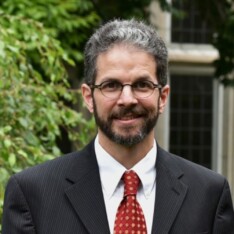[ad_1]

A current ballot by the US Chamber of Commerce discovered that “91 p.c of small companies imagine that they need to give again to their native communities.” Simply what they’ve unjustly taken from their communities that now must be returned is unclear. Businessmen ought to know higher than most all the great that enterprise does. So, too, ought to spiritual leaders, exactly as a result of they’re anticipated to have a particular concern for the poor and exploited.
Sadly, the assertion that worthwhile companies are someway detrimental to the frequent good was on show just lately in a now notorious cartoon of a bicycle-riding Pope Francis revealed by the Vatican’s Dicastery for Integral Human Improvement (IHD). Good intentions aren’t any substitute for sound financial considering, particularly as a result of muddled financial considering traps individuals in poverty moderately than lifting them out.
For some essential context right here, a dicastery is a Vatican division, a part of the bureaucratic equipment of the Holy See (i.e., “the Vatican”). The Vatican is closely depending on the present personalities who occupy these workplaces, and personnel depends on popes who, as sovereigns, can recast and repopulate departments as they like. The present IHD dicastery was created by Pope Francis in 2016 by becoming a member of a number of pontifical councils collectively, every of which may hint its speedy roots to both John Paul II, Paul VI, or Pius X.
The IHD dicastery states that its mission is to advertise “the combat in opposition to poverty” by working “with nationwide and worldwide establishments for the pursuit of integral human growth.” The dicastery “promotes and defends equitable financial fashions and sober life, particularly by selling initiatives in opposition to the financial and social exploitation of poor international locations, asymmetrical business relations, monetary hypothesis and growth fashions that create exclusion.”
There isn’t a area on this transient essay to dissect all that this implies or to unpack loaded phrases like “asymmetrical business relations” and “equitable financial fashions.” Our modest job right here is to handle the damaging misperception that revenue and the frequent good are in zero-sum opposition to 1 one other.
Fortunately, the dicastery, although an arm of the Holy See, doesn’t characterize the one Catholic understanding of the function and function of enterprise in society. Certainly, within the illustration IHD truly contradicts the Church’s Compendium for Catholic Social Doctrine, which was initially revealed by IHD’s predecessor, the Pontifical Council for Justice and Peace. The Compendium is the official, go-to supply for Catholics on ethical questions associated to financial, political, and social life.
The Catholic Church has lengthy condemned unjust enterprise practices and exploitation, and rightly so. The “authentic pursuit of revenue must be in concord with the irrenounceable safety” of human dignity. The very phrase, “authentic pursuit of revenue,” implies there may be each authentic and illegitimate pursuit of revenue. Legitimacy comes from working throughout the rule of regulation, respecting personal property, and conforming to the establishments of justice. Above all, it calls for we take account of the dignity of the individuals whom companies serve, together with their very own workers. Furthermore, we should be occupied with methods to exist in solidarity with others in ever widening circles of change. Companies simply by being companies already promote the frequent good “by the manufacturing of helpful items and providers,” and in so doing, “companies create wealth for all society.”
None of those ethical issues drive us to conclude that incomes a revenue invariably harms the frequent good. As John Paul II wrote in Centesimus Annus, substantial parts of which now kind the Compendium’s sections on enterprise, revenue, and economics, “when a agency makes a revenue, because of this productive elements have been correctly employed.” Revenue is a metric, as any good economist is aware of, that tells us a enterprise is functioning effectively.
The IHD dicastery, in ignoring John Paul’s knowledge on this, is selling the sort of financial ignorance that harms the individuals it needs to assist. What it must be doing as a substitute is mentioning that companies have an ethical function to play in society and might contribute to the frequent good. It’s a grave mistake to disregard the extra strong and complex Catholic educating in favor of a simplistic condemnation of revenue (and, due to this fact, of enterprise). By equating profit-making, as such, with proof of greed and immorality, IHD perpetuates the dangerous zero-sum mentality of mercantilism and socialism.
Christian ethics calls for that Christians be attentive to the wants of the poor. However how we try this entails the appliance of virtues like prudence and temperance in relation to regulation and authorities intervention within the pursuit of justice. As Samuel Gregg places in For God and Revenue, “Between these polarities of no regulation and infinite regulation . . . there may be appreciable room for Christians to debate amongst themselves and with non-Christians the scope, character, and equity of various types of financial regulation.”
Arbitrary definitions of “extreme” revenue result in the sort of bureaucratic regulation and authorities favoritism that retards financial growth and encourages corruption and authorities favoritism as a substitute. “The zero-sum assumption,” Fr. Robert Sirico argues, “prevents individuals from ever asking whether or not the answer to poverty is perhaps to develop the pie much more.” Ultimately, this hurts moderately than helps the poor, notably within the creating world the place it discourages entrepreneurs from beginning companies within the first place.
In contrast, a free financial system undergirded by the establishments of justice and the rule of regulation makes entrepreneurship and profitable enterprise doable. By counting on the worth system and the alerts of revenue and loss to make one of the best use of our sources, the free financial system compels us to think about others and what we’d do for them. It’s actually authorities favoritism and cronyism, not the free financial system, that produces the long-term, outsized earnings decried by Catholic social justice warriors. Adam Smith famous the worth of self-interest unencumbered by authorities planning 250 years in the past: “By pursuing his personal curiosity,” Smith wrote of the businessman, “he regularly promotes that of the society extra effectually than when he actually intends to advertise.”
The other of revenue just isn’t the frequent good, it’s loss. Loss happens when an organization spends greater than it brings in. Revenue and loss are essential alerts, as a result of every tells us concerning the relative well being of the corporate in query and whether or not the individuals operating it are making good or unhealthy choices. Revenue alerts effectivity and the success of shoppers’ wants.
And for the entrepreneur who understands his inventive labors as a vocation, revenue is greatest seen not as one thing he pursues however moderately because the blissful by-product of his inventive excellence. Revenue is a metric for economists and a sign to traders. However, most significantly, it confirms to the entrepreneur that he’s fulfilling what should be the clear mission of the Vatican’s Dicastery for Integral Human Improvement: enhancing the dignity of the human particular person by want success and financial development.
[ad_2]
Source link




